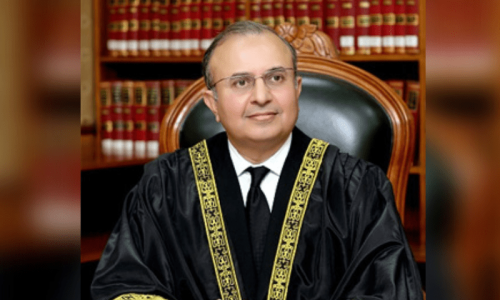This is the second in a two-part series of pieces on the violence in Karachi. The first piece discusses the shrinking of confidence in the government and the growth of private security services in Karachi.
Many arguments support the deployment of the army into Karachi to tackle the growing violence in the city, from the ineffectiveness of other law enforcement agencies to the perceived lack of political will and biases of the major political parties operating in the city. Repeated assurances, an increase in the strength and powers of Rangers in the city and the deployment of the FC to Karachi all seem to have had little effect in tackling the violence confronting the city, with over 300 people being killed in Karachi in the last month. Given the inability of current law enforcement agencies to noticeably stop violence in the city, many are increasingly turning to the army as a last resort to restore peace.
Beyond supporting army operations in the basis of efficacy, the army also has the potential to present it as a neutral player – able to transcend the bitter partisan lines and persecute all those involved. While the army may be seen as a more neutral force, to many they are seen as the only ones. As Hammad Siddiqui writes, “there is a glaring lack of political will on the part of the federal government to address the issue… an indiscriminate operation against groups would alienate them from the government.” Beyond the federal government, at the provincial government “years of misuse by political actors has turned the police into a politicized force on a tight leash” unwilling and unable to act when it may threaten the interests of its various political benefactors.
Beyond its perceived neutrality, in a time in which disillusionment with the government runs rife, the army is also viewed as the stronger and more serious institution needed to tackle the issues the country faces and above the immaturity of political point scoring. Whether low expectations foster few results or vice-versa, the fact remains that while people continue to die on the streets politicians seem content embarrassing themselves by ranting about haleem dinners they’ve been invited to and criticising others. Indeed when our elected representatives degrade the political process into a circus, it is hardly surprising that historically army interventions into the Pakistani polity have been met with so little resistance.
While the behavior of some politicians may leave many yearning for the intervention of the army, deploying them to Karachi could cause, rather than solve problems. Historically the record for army interventions in Karachi has been less than stellar and a significant cause in the demise of the administrations that have employed them. A possible army intervention will hopefully yield different results if employed again as it would involve all communities in the city standing up to extortionists and murderers, rather than using the mechanisms of state to target one another.
Indeed the broad-based support of all communities – and the indiscriminate targeting of miscreants regardless of political affiliation or ethnic identity – is probably the single largest determinant in whether the army can and will be useful. An army intervention that appears to target one community over another would be disastrous for both Karachiites and their brothers and sisters throughout our country. Aside from ignoring one of the elements contributing to chaos, an army operation that is perceived to be targeted at one community over another risks the chance of alienating communities, losing the army it’s perceived role as an institution for the people and not the politicians and redefining civil-military relations for the worse a la Balochistan.
Beyond the possibility of threatening the fragile balance between communities and parties within Karachi, military operations also have the potential to escalate the violence in the city, as extortionists, mafiosos and others could lash out against attempts to curb their power by wreaking further havoc upon the city. The efficacy of such an operation may also be limited by the very real operational constraints the military might face – armed forces are not trained to deal with urban policing operations, they are trained to meet other armies in battle. Despite how well-trained our army may be, fighting tanks and columns in the deserts of Rajasthan is not the same as fighting snipers through the narrow, winding alleys of Lyari.
While the situation in Karachi may be intolerable, with innocent blood spilled daily and the authorities seemingly unable to stop the violence, whether the involvement of the military will help the situation is unknown. One thing is clear however – just as the networks of crime and gangs that are responsible for the violence built their presence in Karachi over time, so too will it take time to rid the City of Lights of their insidious presence.
Whether through the deployment of the army or through targeted operations as currently being carried out in Lyari by the police and Rangers, ending the killing sprees that have gripped Karachi will take a sustained effort over time. Unfortunately, for all those whose fathers have left for work or errands only to return home several days later in gunny bags and all those mothers who bid their sons goodbye in the morning, their hearts torn by the fear that their son will not return, time is a luxury that can not be afforded.

The views expressed by this blogger and in the following reader comments do not necessarily reflect the views and policies of the Dawn Media Group.









































